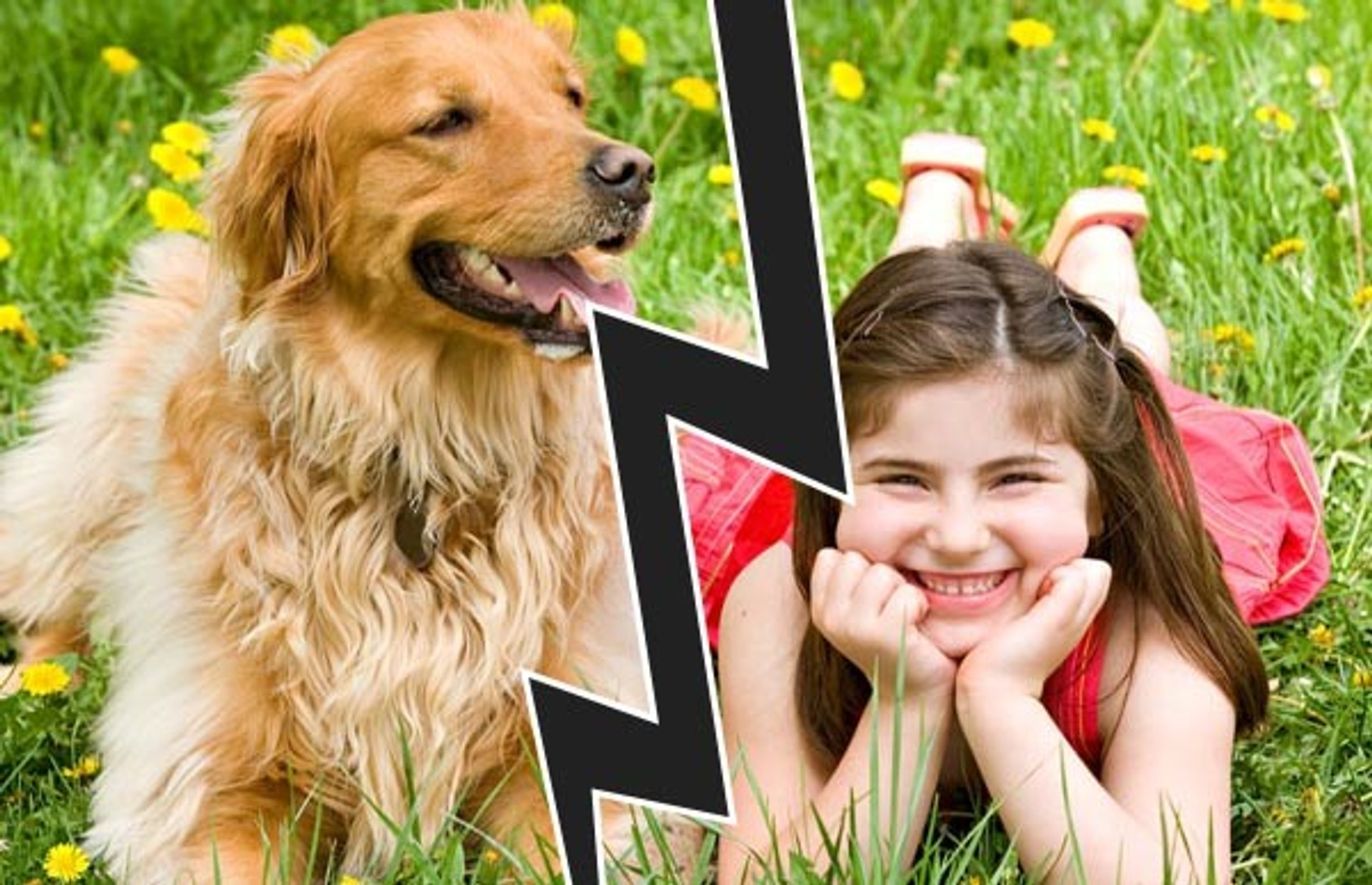A recent incident with my own pet dog is a timely warning to all…
Any dog can bite!
All parents and those dog owners that regularly have children visit their homes need to read this article.
Some of you may be familiar with my pet dog ‘Bear’ through the training videos that are on the site. He is a five-year-old Golden Retriever/German Shepherd cross. He is a very happy playful dog, sometimes quite silly and always standing in front of you with a toy or ball in his mouth hoping for the opportunity to play.
He is very obedient, particularly for me, and has never shown any aggressive tendencies other than barking at strangers coming to the house. With children of my own, I never considered him to be a dog that would potentially bite anyone, let alone a child.
A few weeks before Xmas, my daughter and friends were playing in our backyard when the unthinkable happened and he bit one of the girls. Now I do not want to go into detail about what exactly happened, suffice to say the bite caused enough significant damage to warrant stitches and a visit to the hospital.
As a parent and a former police dog trainer, I was both completely shocked and distressed about what Bear had done. At first, as a ‘dog professional’, I even felt a little embarrassed that ‘my’ dog had done something like this.
Obviously, after taking care of the girl and getting the necessary medical assistance, the next question was why? The initial reports from the other girls suggested the unfortunate girl that was bitten (a stranger to us and the dog) had approached the dog and bent down and hugged him in a human-like embrace.
Now at no time here do I want to discuss blame or who should have done this that or the other. It is however a timely reminder to examine the whole dog-child relationship and how as parents and dog owners we can best avoid anything like this happening in the future.
Statistically, most dog bites occur around the home. It usually occurs when a child and a dog are playing together, or if the dog is sleeping or the dog is eating. Here are some general tips:
For Parents:
- As parents, I think it is important to ensure that we explain to our children to firstly not approach a strange dog until the owner has
given permission or been given the chance to explain anything the dog does not like or warn you away.
- Encourage your children to seek permission from you before petting a strangers’ dog.
- Teach your children to pet/play gently and avoid petting the top of the dog’s head. When approaching any dog approach from the
side in a non-threatening manner. No screaming, yelling etc... Calm and gentle is the way to go!
- Teach children to leave sleeping and eating dogs alone.
- Avoid letting your child approach a dog with food in his/her hands or on their face.
- If you see a dog display any threatening signs (growl, raised hair on back, lifts lips, stares intently etc) quietly remove yourself and
child from the situation.
- When visitors with children arrive spend a moment to explain the rules about your dog and introduce them personally when
appropriately.
For Dog Owners:
- As a dog owner ensure you have solid obedience. ‘Sit’, ‘Drop’ and a solid ‘Stay’ can be invaluable if a situation arises.
- Avoid feeding your dog if visitors are at your house.
- Avoid feeding from the table at gatherings like BBQ’s as it can teach your dog to approach and take food from visitors.
- If you cannot supervise children and your dog, secure the dog in a pen or laundry etc.
This list is not a guaranteed remedy to avoid an incident similar to the one that occurred at our house. However, it certainly will help to greatly reduce the risk. The unfortunate news stories we read about dog attacks do appear to be increasing in frequency and if this highlights something you can do to make things safer then this has been worth writing…

The feedback we have received from this article has been overwhelming, and positive. Thank you to everyone who has contacted us with supporting information and articles. Here is a great resource to an informative website for parents and dog owners, called "Stop the 77" - this refers to the fact that 77% of dog bites come from a family or friend's dog - http://stopthe77.com/






